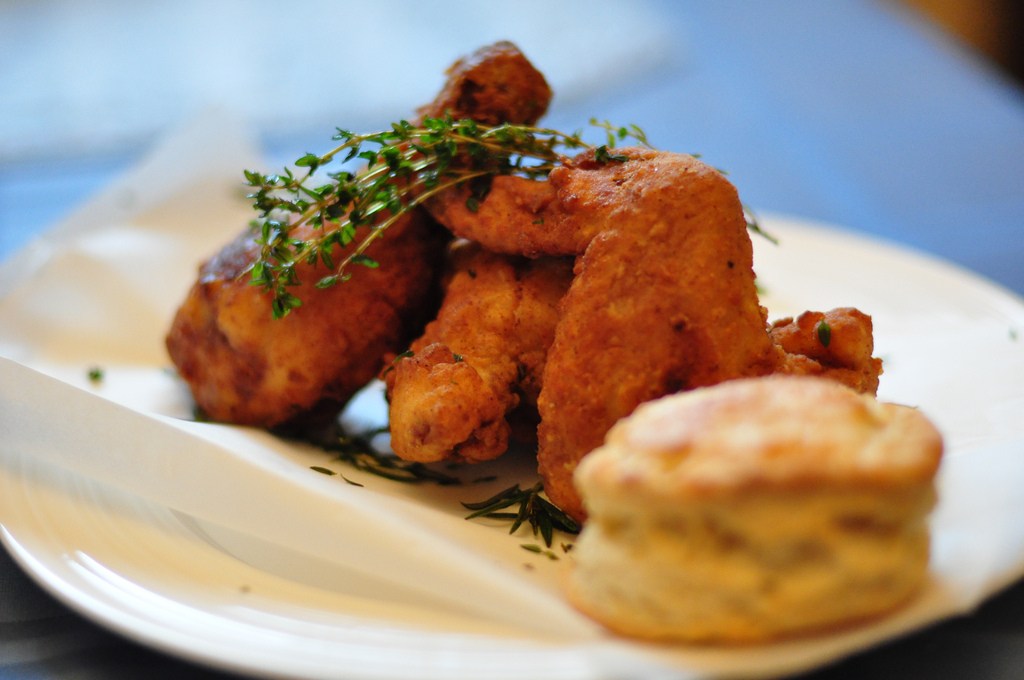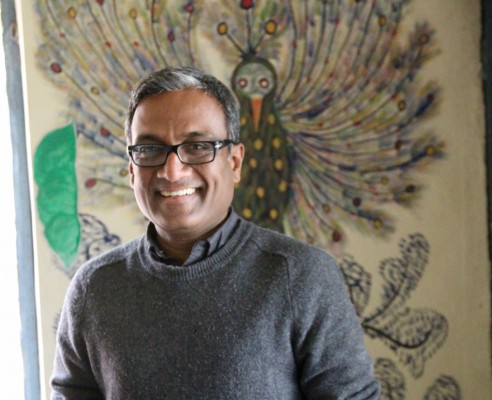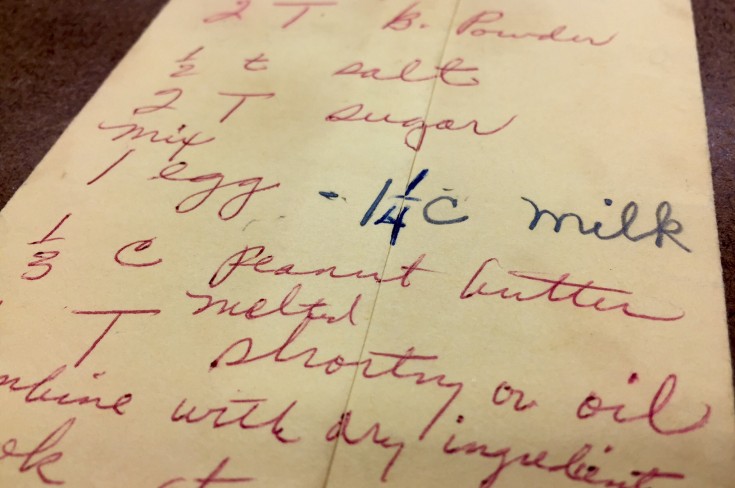
This week's episode of The Sporkful podcast is up! Listen through the player or iTunes/Podcasts app. (And please subscribe!)
How does what we think about different people affect what we think about their food? And how do stereotypes of our food change how we feel about ourselves?
And how does this all affect what we actually end up eating?
In the second episode in our special series, Other Peoples Food, we explore how food and identity overlap.
First up: cookbook author Nicole Taylor (below) reveals the shame she used to feel about the southern foods she grew up eating in Georgia.
"I called it all slave food," she says. "I’m like, I’m not eating the old-school neck bones and rice. I thought it was poor people’s food."
Nicole lives in Brooklyn now, and her Up South Cookbook incorporates both northern and southern influences. As an adult living in New York, she longed for southern foods from home -- and that helped her gain a new appreciation for them.
But her relationship with fried chicken remains complicated:
"If I’m going out to a business dinner, I won’t order the fried chicken because they assume that I’m going to order that," Nicole says. "As a Black woman from the south...you’re constantly aware of cultural foods…[that] still have those stereotypes."
According to Professor Krishnendu Ray (below), chair of NYU's Food Studies Department and author of The Ethnic Restaurateur, there's a reason why we value some culture’s foods more than others -- and it’s not about the food.
"If a group of people are doing well and if a country is doing well economically, we tend to upgrade our estimation of their culture," he explains. "And that feeds back into whether we consider it to be cheap ethnic food or expensive foreign food."
Listen in to the full episode to hear why Nicole won't eat fried chicken with Dan -- and to learn why Italian and Japanese food often cost more than Chinese and Mexican cuisine.
Later in the show, we turn our attention to food media and how cookbooks, food blogs, Instagram, and yes -- even podcasts -- can influence what we eat.
"A lot of third world cuisines…that taste fantastic…[do] not look very good – you can’t make a very pretty picture out of it," Professor Ray explains. "Media is absolutely central to propagation and popularity of a cuisine."
Cookbook author and food artisan Chitra Agrawal (below) from Brooklyn Delhi joins us to talk about some of the obstacles she faced in publishing her forthcoming South Indian vegetarian cookbook.
"When we were trying to sell the book through, [publishers said]: 'Oh well we already have an Indian author so we’re going to pass on that,'" Chitra says. "Even though my book may...talk about a whole other type of cooking from India, if there’s another author doing an Indian cookbook, then we just get lumped into the same pile."
Does food have to be photogenic to succeed in America? And will Chitra ever get to write a general American cookbook for vegetarians?
Listen in to the episode to hear our full conversation about food, culture, race, and media.
This week's episode of The Sporkful podcast is up! Listen through the player or iTunes/Podcasts app. (And please subscribe!)
Connect with Dan on Twitter, Instagram and Facebook!
Interstitial music in this episode by Black Label Music:
- "Pong" by Kenneth J. Brahmstedt
- "Can You Dig It" by Cullen Fitzpatrick
- "Fresh Air" by Erick Anderson
- "Legend" by Erick Anderson
Photos: FlickrCC/Julia Frost; FlickrCC/Brett Lider; Noah Fecks; Chitra Agrawal; Maggie Tauranac; FlickrCC/Lucas Richarz






